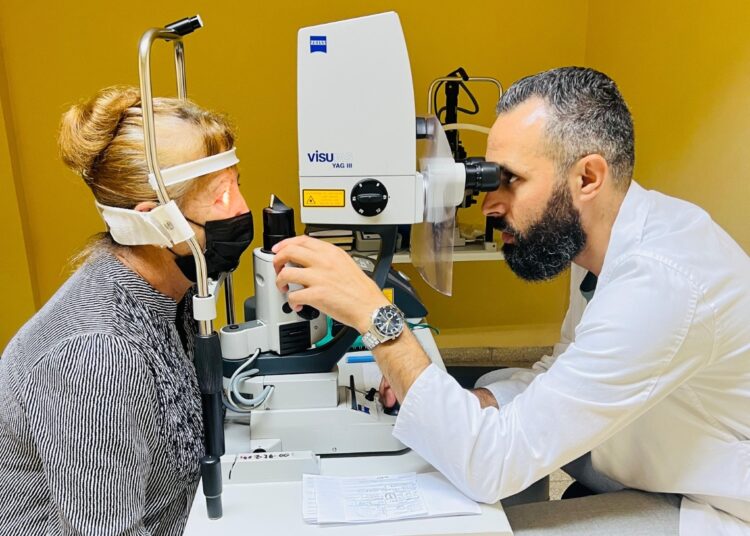I met Dr. Tareq Ziad Mustafa through his wife. She has a degree in hemotherapy and works at the Blood Bank of the Lucía Íñiguez Clinical Surgical Hospital in Holguín. I met her on shifts and when she learned about my keratitis she offered to help me. Before she introduced me to him, I had heard Dr. Boris Luis Carballo, director of the Holguín Ophthalmological Center and Tareq’s mentor, talk about the latter’s work.
Dr. Tareq was born on September 12, 1993 in Tulkarem, Palestine. He arrived in Cuba more than fifteen years ago, in 2009, through a collaboration program between the Cuban Ministry of Public Health and the Palestinian government. It happened a year before the first Palestinians who were part of the Latin American School of Medicine (ELAM) arrived on the island.
Originally, his scholarship was to study health technology in the specialty of anesthesia. But a few months after arriving in our country, he and the rest of his classmates were given the opportunity to study medicine. In all these years he has spent more time in Cuba than in his native country, which he loves dearly.
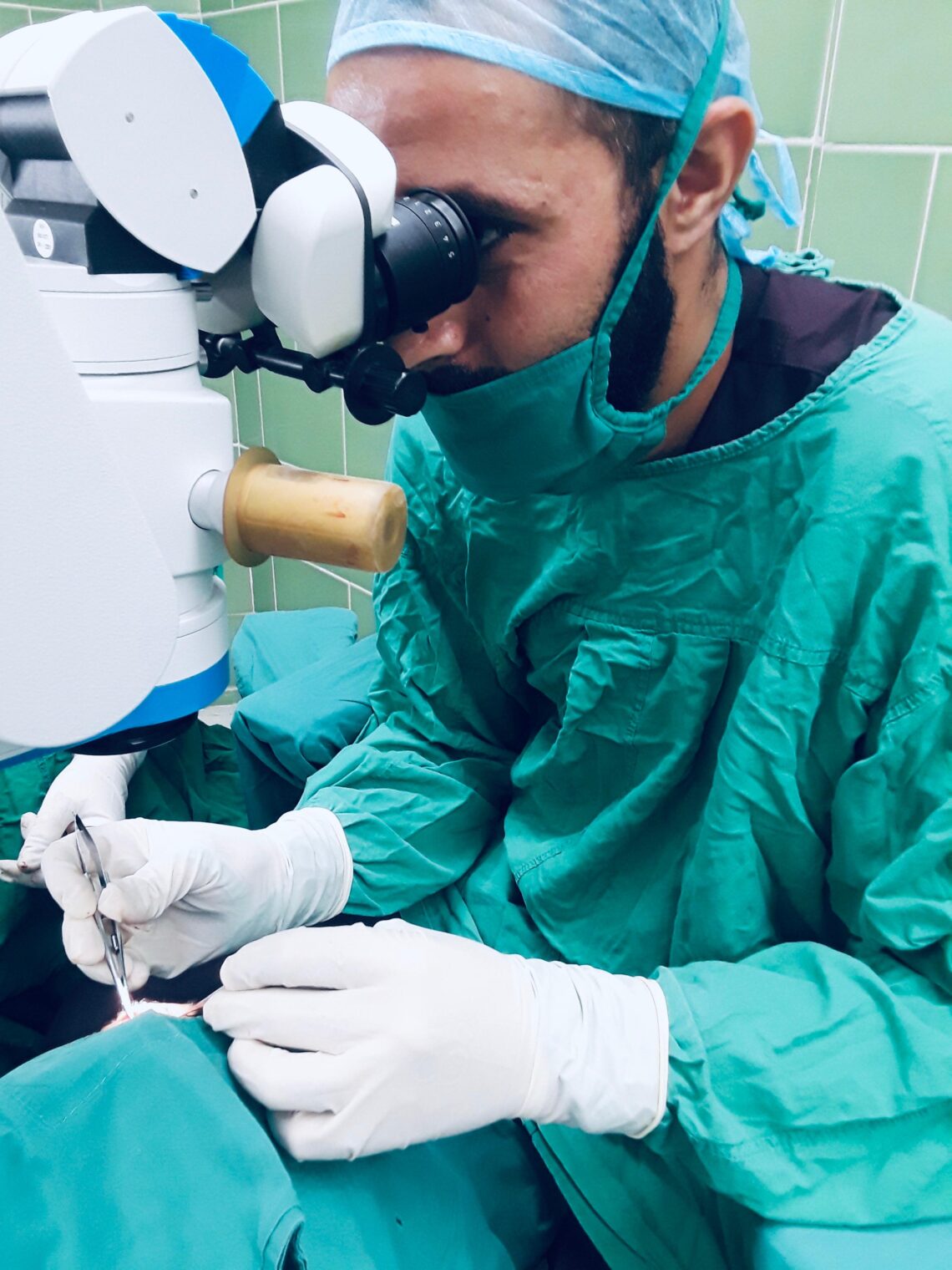
It’s Thursday, his day to see patients. We are at the Holguín Ophthalmology Center, where he is accompanied by two residents.
Dr. Tareq is a tall, slim man with deep receding hairlines and a thick black beard that is beginning to show a few gray hairs. He greets me with a smile and a very Cuban “how are things going” with an unmistakable Arabic accent.
After the obligatory questions and a brief examination with the slit lamp, he confirms that my keratitis is much better and we agree on the next steps of the treatment.
Before saying goodbye, I remind him that we had agreed to meet for his interview. “Don’t worry, I have time,” he says. I know that I will need patience, it is mid-morning and he surely has patients waiting. “Give me half an hour,” he says. We manage to sit down to talk after midday.
How and why does a young Palestinian come to practice medicine in Cuba?
It was in 2009, when the Cuban government offered the Palestinian government scholarships to study health technology on the island. My parents sent me to Havana to start preparatory high school year, which is like the last year of senior high in Cuba. I was 17 years old. In 2010, the authorities of the Cuban Ministry of Public Health offered me a transfer and sent me to the University of Medical Sciences in Holguín to begin the first year of the medical degree.
What was it like arriving in Havana?
It was a huge change, to be honest. The climate, culture, language, everything was different. Nothing resembled my country of origin: not the way of dressing, nor of speaking, of living or understanding life. Here there was a different freedom than what we knew, because of war issues. That slowed me down a bit at first, but little by little I got used to Cuban life, which I liked, and look where I am! (he smiles).
You once told me that what was hardest for you was the language…
At first, yes. Arabic has nothing to do with Spanish. The letters are different, they are written from right to left, we have a completely different alphabet. We speak English, but it is not the same.
Language is a major barrier. When you master it, you fit into the community normally, that is when you feel calmer, more relaxed: you can communicate with people, understand them. At first it was like being on another planet, both because of the culture and the language; it is not easy to go shopping for something and not know how to say what you want.
What did you miss most in those early days?
Family, friends, culture in general, the land, very important! We have a great sense of belonging to Palestine; it is something you will always see in any Palestinian, young or old. It has been very difficult for me to separate myself from my land. Despite that, I have a double heart: Palestinian and Cuban.
How did you get to Holguín?
The group of Palestinians who came in 2009 was divided to continue the scholarship, which included a one-year leveling course to learn the language; then we would study health technology. But the opportunity to study medicine arose. Some were sent to Santa Clara, others to Camagüey and Santiago de Cuba, and me to Holguín. I didn’t even know where the province was. After I arrived, I got to know the people and became familiar with the city.
Was the plan to study medicine?
No. At first, the plan was to study health technology. I particularly got anesthesia, for others it was dental health. Later, when the opportunity to change careers came up, we were given a preparatory course beforehand, which included subjects such as biology, physics, etc.
Were you satisfied with the change?
Very much. I didn’t expect it. Being a doctor was something I couldn’t achieve in Palestine. Thanks to Cuba and the offer they made us, I’m here.
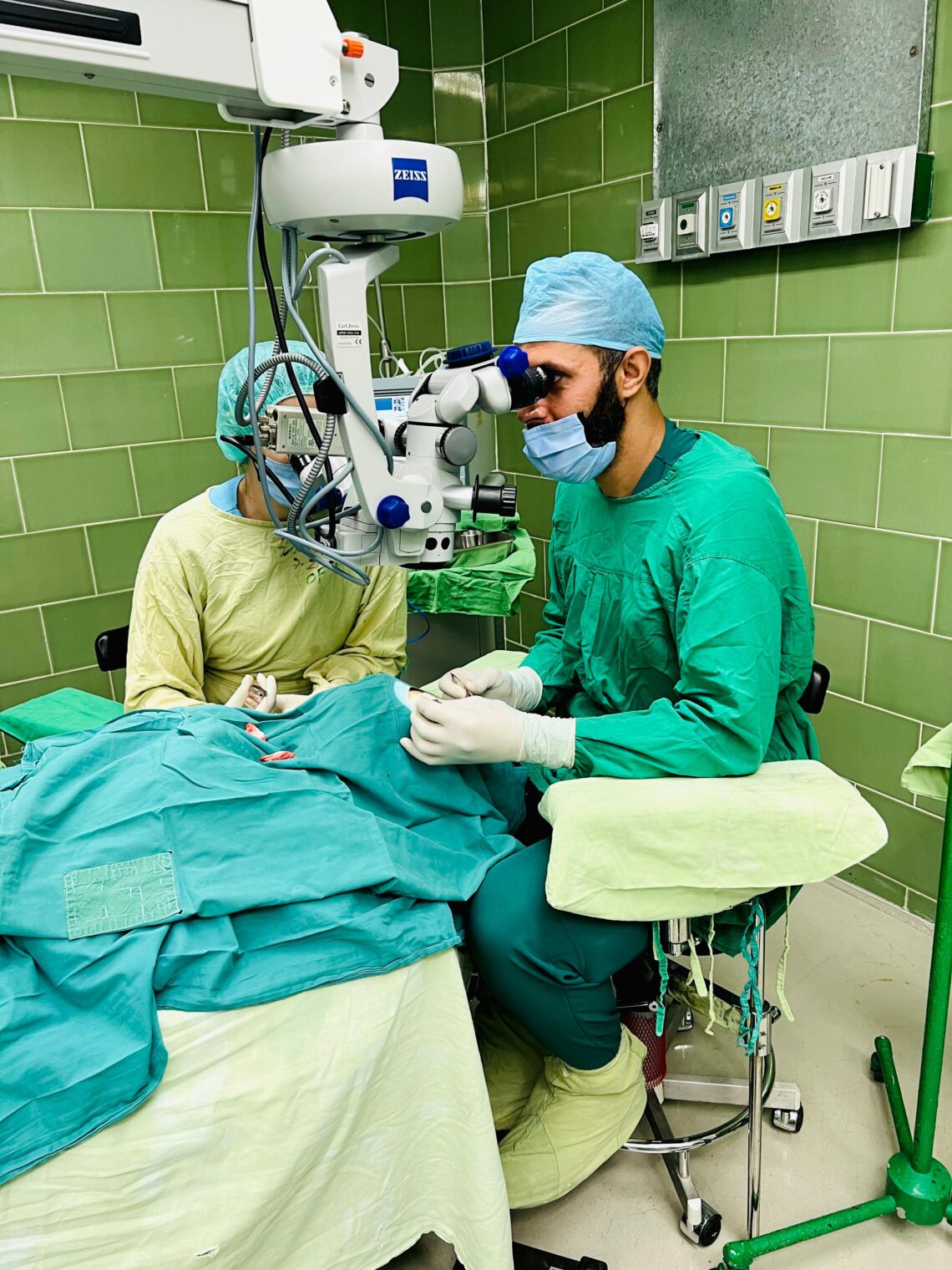
What is it like to be born and grow up in your country?
From the moment you are born you are under attack. When you grow up, you start to know what is happening around you, why the war, what Israel is, what Palestine is; all of that is studied in school.
Is there any anecdote that you remember?
After I turned 14, I experienced several clashes with Israeli soldiers. I have suffered both psychological and physical damage.
Is this normal there?
It happens frequently, and nobody cares. Human rights organizations know this, but no one does anything because no one can mess with Israel. You can complain and ask for help from the United Nations, but nothing happens afterwards.
Who are your parents?
My father is a politician, he became deputy minister of the economy. He now works in the president’s department. My mother is a teacher and runs a primary school. When my father left the military and went into politics, we were relieved, because he was no longer linked to the resistance.
In Palestine there are eleven political parties; they all have their ideas, their methods, but the same goal: liberation. We have many differences, but we agree on one goal, which is to liberate Palestine.
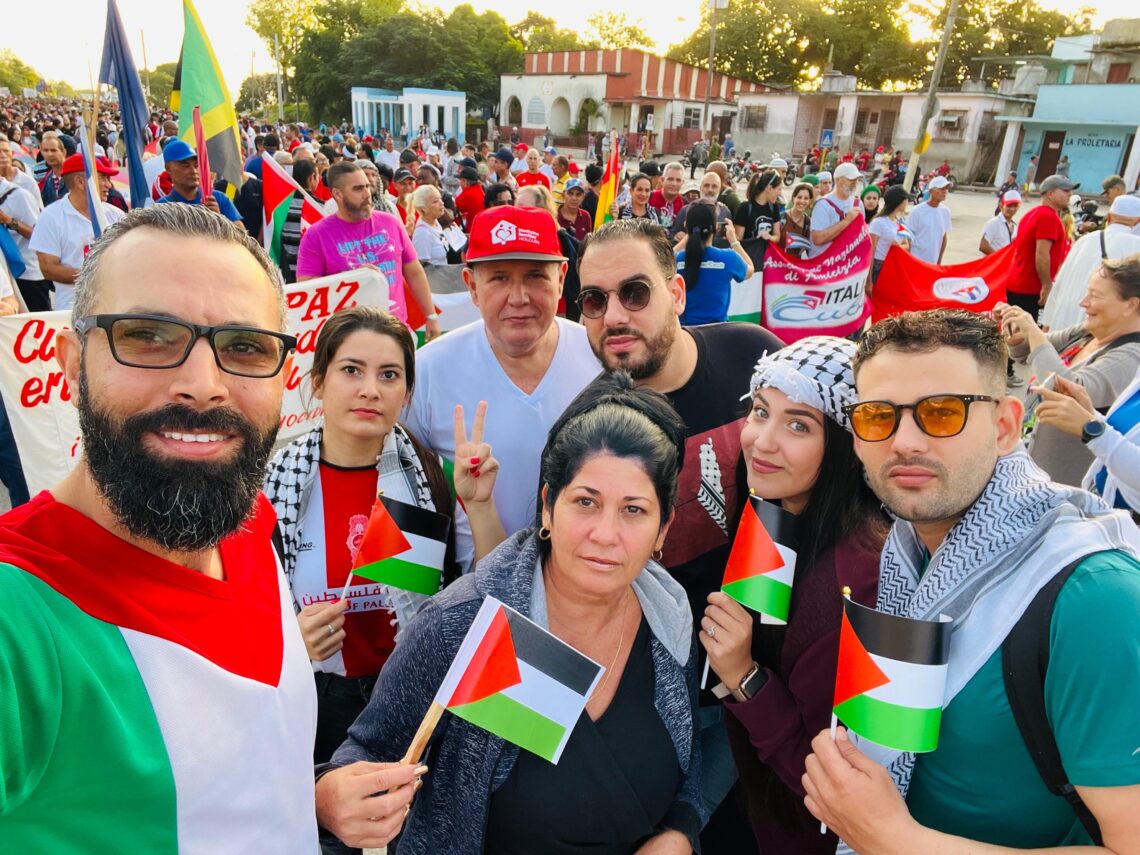
What was your dream as a child?
The dream of anyone born in Palestine is to see the people united, freed from the evil of the Zionist government. That was mine. I also wanted to be a soccer player and a civilian pilot. Then a doctor, although that was after learning about medicine and studying it.
After you finished your studies in 2016, what did you do?
I went to Palestine, and there I faced more problems. Not personal ones, because everyone has problems there, but problems at a political level. If you want to move from one city to another, for example, the Israeli soldiers don’t let you, there are many checkpoints and they don’t let you through.
I trained with a soccer team in another city. To get there I had to go through three checkpoints. They didn’t let me through because they didn’t want to, there was no reason to deny me access. The car I was in had the sign of a doctor and the Red Cross, and not even then.
Did you practice medicine in Palestine?
I started, because there they ask us for a year of social service. Then I decided to emigrate to Spain, where they offered me to take the Medical Resident Intern (MIR) exam to start doing the specialty. I worked as a doctor for three or four years, in Valencia, intermittently, because I traveled to Cuba and Palestine. In 2019, the Cuban Ministry of Public Health offered me the possibility of studying the specialty in ophthalmology and I didn’t think twice. I bought the air fare and started in September or October of that year.
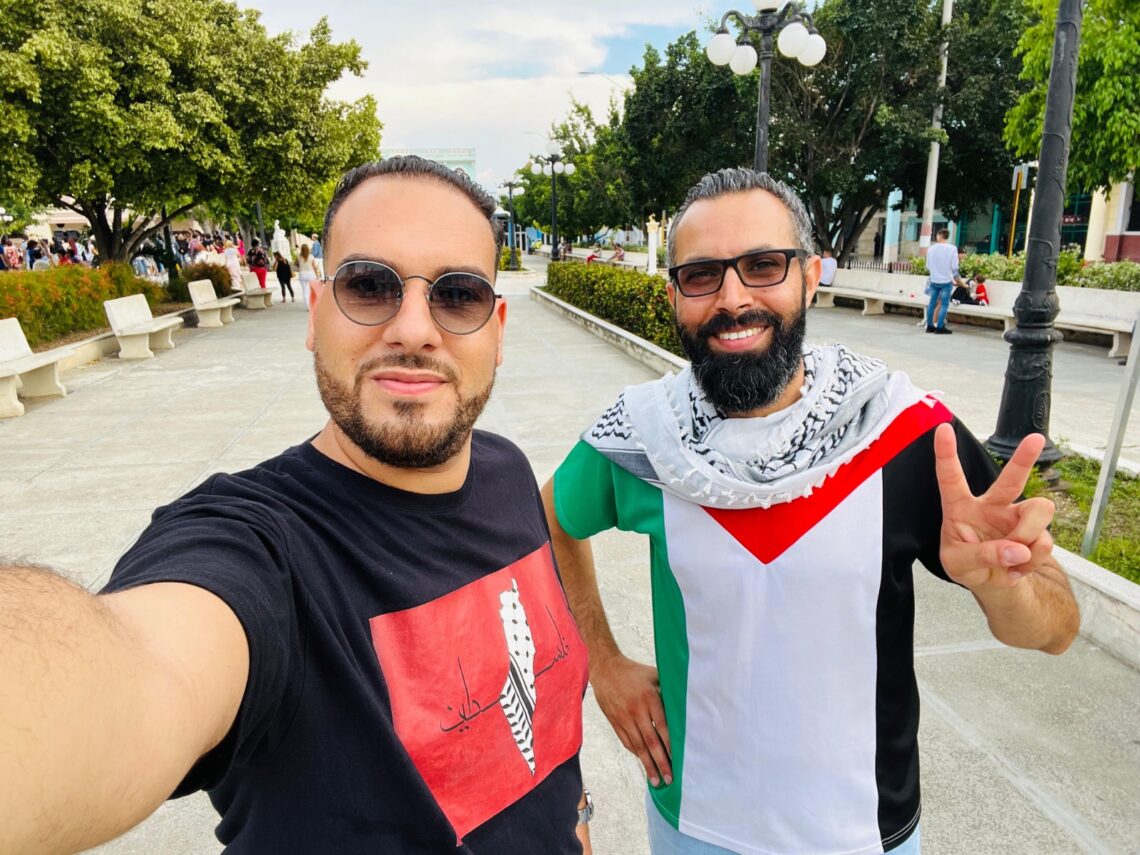
Were you here during the pandemic?
Yes. I worked at the Vladimir Ilich Lenin Hospital in Holguín. We were on call, in a position in the emergency room, like all medical specialties.
Did you live as a Cuban doctor during those years?
Yes. I have always felt and lived for a long time like the Cubans, since I was on the scholarship. I went through the same hardships that doctors, engineers and anyone else here go through.
Do you feel love for ophthalmology?
Huge, it is a love that cannot be compared to anything. I cannot describe it; it is part of my life. I do not see myself doing anything else.
You no longer want to be a pilot?
I don’t want to be anything else. (He smiles)
During these months that you have treated me as a patient, it has always struck me that you walk around with a backpack full of medicines and supplies for your patients…
It is the little that I can do for a people that has given me so much. In Spain I have ways of buying cheaper medicines. I buy in bulk some specific things that we need in ophthalmology, and others that I have always handed over to other sectors.
I like to help in this way, with medicines that we know are in short supply right now. If I have them, I give them directly to the patient.
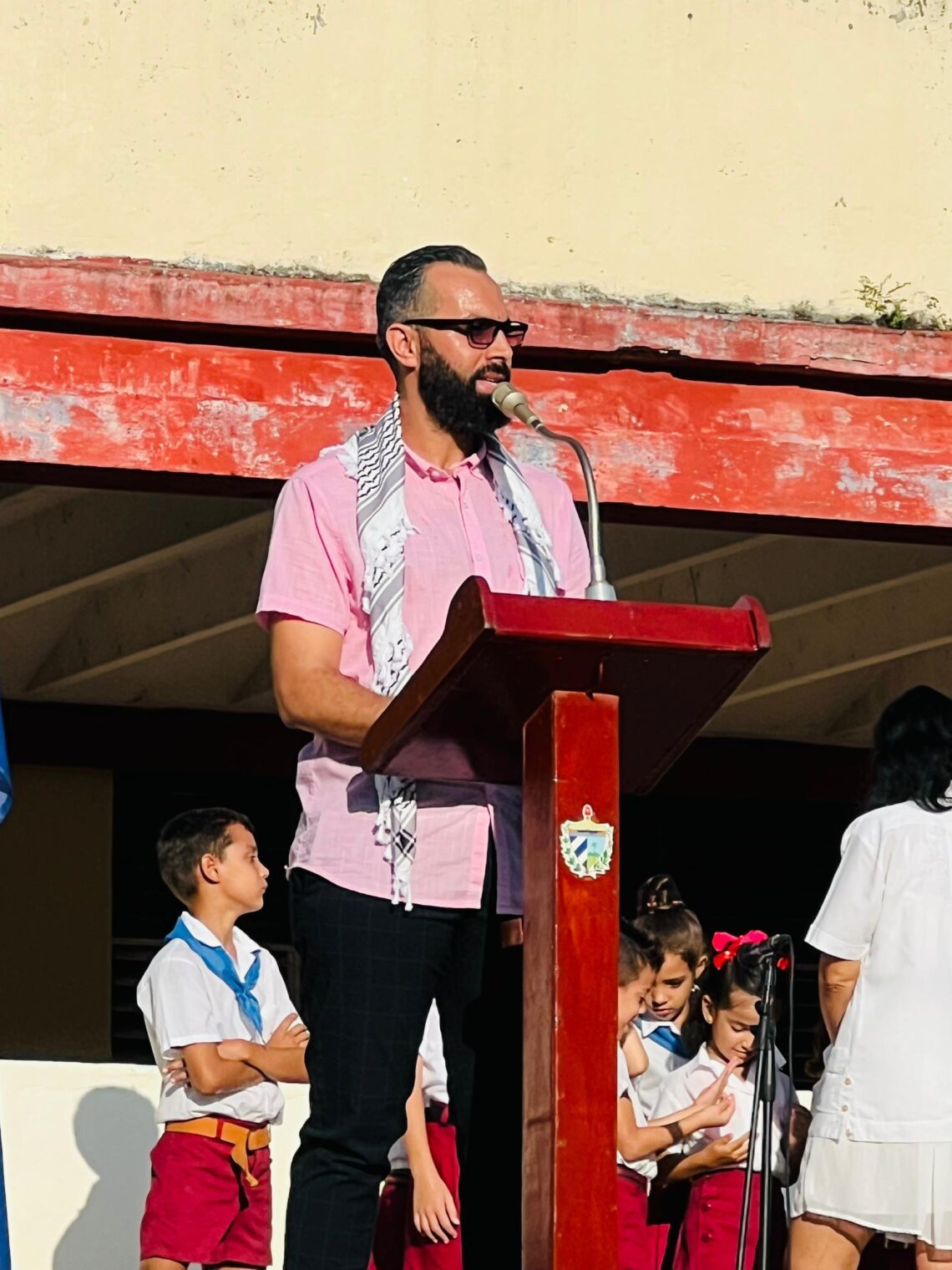
Do you feel that you are compensated in some way?
That has only one payment, which is the patients’ love and what I can contribute to their health.
Palestine has lived through very hard times lately…
The situation is very complicated, both in the West Bank and in Gaza. It goes without saying what people were going through under the daily attacks from Israel. Gaza is in ruins.
Did you live in any area close to the conflict?
We live in the West Bank, in Ramallah, a city that is about two hours from Gaza. There the situation was not as bad as in Gaza, but we have experienced others.
How would you describe what has happened there?
A genocide. We are talking about a huge number of deaths. Talking about it makes me sad. There are more than 50,000 dead, there is talk of 83,000 orphans, including children. How many people have not yet been recognized as dead, as martyrs? That statistic will continue to grow in the future.
Were they civilians?
The majority. They don’t care if they are civilians or soldiers, they attack where they suspect there are people they call “terrorists.” Everyone knows that they are the terrorists.
How do you describe the love for Palestine?
It is a long story. We are talking about Jesus, who was born in Bethlehem, in the West Bank. Abraham walked from Sinai to Palestine, and from Palestine to Sinai. That land was and remains holy. But it has also been under attack ever since. All people born there have that sense of belonging and have always lived through war situations. It is said that Palestinians are like olive trees: they have very deep and wide roots, and they cannot be removed from their land.
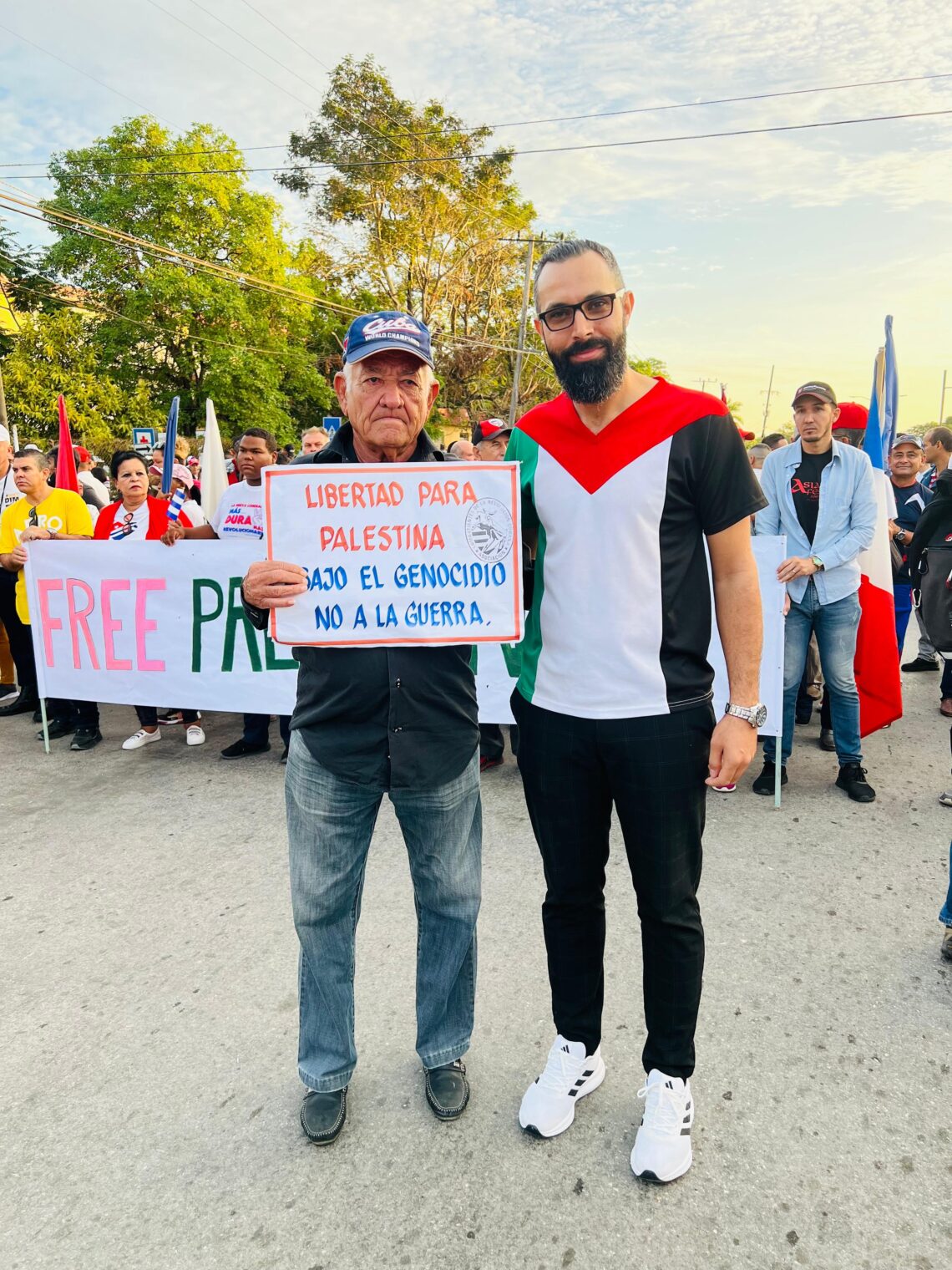
You’ve already finished the specialty, what’s next?
Now it’s time for a period of surgical training, which can last as long as we manage to organize it with Dr. Boris, at the head of the Ophthalmological Center, and with the head of the Pando Ferrer Hospital, in Havana. I have a work contract in a hospital and a private clinic in Spain. I work there…I’ll be back. I’ll do that.
You’re not leaving Cuba?
No, Cuba is part of my life. If I leave, it will only be for a while.

